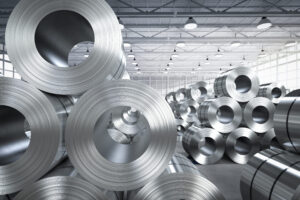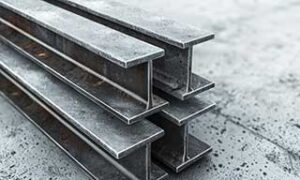
Regulatory compliance is a big issue for all major companies. There’s always at least organization imposing demands and threatening penalties if they are not followed. This is especially true for those in the steel and metals industry, and staying compliant often means collecting vast quantities of data, compiling many reports, and ensuring these are sent to the relevant authorities.
There is an easier way, though. For many metal framing and metal fabrication companies, the ideal solution comes in the shape of an enterprise resource planning (ERP) system.
The Regulatory Demands Placed on Companies Within the Steel and Metals Industry
Whether you’re a plate processor, multi-line processor, coil processor, or metals service center, if you’re involved with the steel and metals industry, you will come under strict scrutiny from various regulators. Failure to stay compliant in the face of these regulations could lead to strict penalties, including fines and licensing issues.
Some of the most common regulations imposed on steel and metal manufacturing companies include:
Environmental Regulations
Companies involved with metal production are increasingly being asked to consider their impact on the environment. The perfect metal optimization software is no longer just a guide for producing the best product in the quickest time and for the lowest cost; it must also consider the proper use, storage, and disposal of hazardous materials, as well as air emissions and wastewater management.
Special attention must also be paid to how certain minerals are acquired, ensuring they do not qualify as conflict minerals, which means they have come from regions known to have committed human rights violations, as well as those with ongoing conflict funded by the sale of said minerals.
Product Safety Regulations
Strict testing, quality control, and reporting are essential for ensuring that only the highest quality products leave the factory and can be recalled quickly and safely if any issues arise at a later date.
Labor Regulations
Labor regulations deal with the rights of workers and require employers to adhere to strict employment practices. These regulations span elements such as proper overtime pay, fair working hours and wages, anti-discrimination measures, and employee benefits.
Regardless of the company’s size or specialty, and regardless of how many employees it has on its payroll, it must adhere to all employee regulations and foster a safe and fair working environment at all times.
Health and Safety Regulations
Not only do employees need to be paid well and treated fairly, but they should also be provided with a safe working environment. It’s a key consideration in any industry, but it is particularly important in the manufacturing sector, where a serious oversight or lapse of judgement could result in severe injury or death.
How to Stay on Top of Steel and Metal Regulations
As you can see, there are many nuanced regulations to consider. It adds up to a lot of data which in turn creates headaches for the teams asked with handling compliancy. It also increases the risk of oversights, especially as those regulations are constantly changing.
There are a few ways that steel and metal companies can stay on top of all this, and it starts with the proper integration of a customized ERP solution, like those provided by RealSTEEL™.
Use ERP Solutions
ERP is a complete software suite that brings multiple departments together and creates a single source of information. It makes ordering, manufacturing, and shipping easier, and can be incorporated with key programs such as steel optimization software, steel service center software, metal nesting software, and plate processing software. More importantly, it combines data from across the company and makes it easier to monitor compliance and ensure that every box is being checked.
ERP solutions use automation to run real-time reports. These can then be sent to the relevant department or used to isolate specific areas that need to be improved.
Stay on Top of the Latest Changes
Properly integrated ERP solutions are only one piece of the puzzle when it comes to regulatory compliance. Steel and metal companies must also monitor regulatory news and agency updates to monitor the latest changes and ensure they continue to meet all regulations.
Create Clear Regulatory Protocols
All companies need comprehensive systems in place for dealing with regulations. These include specific protocols for checking compliancy (such as conducting periodic audits and keeping detailed and accurate records using ERP) and improving where needed (communicating with regulators, providing training to employees, etc.).
Communicate with Regulators
Regulators don’t exist solely to provide vague instructions and then penalize you when you don’t follow them to the letter. You can communicate with them and seek clarification as needed. If you’re not sure about something or have been told that you need to make improvements, don’t be scared to work with them and find a viable solution.
Seek Professional Help As Needed
If you’re struggling to stay compliant in any specific area, seek professional help. There are legal professionals and consultants who can assist you with specific areas, such as environmental consultants who advise on where your business is faltering and how it can improve.
These services can be costly, but if there are issues that need to be addressed, they could save you a lot of money in the long term. You can also make their life easier by using ERP to record all current operations and implement any changes that they suggest.
Using RealSTEEL™ to Stay Compliant in the Steel and Metals Industry
Regulatory compliance is just one of the many benefits of ERP systems. ERP integration can also streamline your ordering, manufacturing, and shipping processes, ultimately creating a better working environment for your employees, higher profits for you, and smoother transactions for your suppliers and clients.
It’s an all-in-one solution, and with RealSTEEL™, you can adapt it to your specific needs and upgrade as you scale your business. For example, our integrations can include tools such as:
- Sheeting and Leveling software
- Cut-to-length software
- Flat-rolled software
- Steel service center software
- Steel nesting software
- Plate processing software
To learn about the ways that RealSTEEL™ can benefit your business, contact us today.




